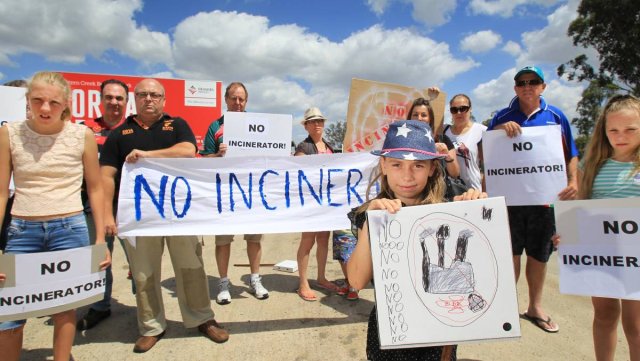
More than 1000 submissions were received about plans to build a $500 million waste-to-energy plant proposed for Western Sydney. Community members and health authorities have shown strong opposition to the incinerator and its associated health risks.
The incinerator, to be built at Eastern Creek, would use thermal technology to create electricity from waste that would otherwise go to landfill. While the proposal is designed to reduce greenhouse gases, there are concerns it could have a detrimental impact on air quality.
Western Sydney already has an air pollution problem. As air quality declines, the risk of stroke, heart disease, lung cancer and chronic and acute respiratory diseases, including asthma, increases. Ambient air pollution, made of high concentrations of small and fine particulate matter, is the greatest environmental risk to health, causing more than 3 million premature deaths around the world every year.
The St Marys-Mt Druitt Teachers Association released a statement opposing the approval of the incinerator. "There is a clear threat to public health across the Sydney airshed, and in particular to the health of students in the many schools located in close proximity to the proposed incinerator."
Western Sydney Local Health District also expressed its concerns. "The proposal to build and operate an incinerator within city limits is not consistent with over 100 years of environmental regulation to improve urban air quality by removing incinerators and power stations and other sources of pollutants from urban areas."
Melinda Wilson from No Incinerator for Western Sydney said: "It is a huge concern that our government is conducting a study to reduce population exposure to particulates and provide better knowledge of the most cost-effective policies to reduce population exposure to particulates within Western Sydney, while on the other hand that same government is considering a proposal in the same area for the world's largest incinerator, which are well known to produce ultra fine particulates. It just doesn't make sense.”
Particle pollution causes a number of health problems, including respiratory illnesses, such as asthma and bronchitis, and cardiovascular disease. In addition, the chemical components of some particles, particularly combustion products, have been shown to cause cancer. Particle pollution is already a major air quality issue in Western Sydney, without the incinerator.
Community members are also concerned about the dioxin that will be released by the incinerator into Sydney's airshed. The proposed incinerator will have an emergency shut down when the temperature reaches 37°, which is when the most dioxins are released. Last summer temperatures regularly reached 47° in Greater Western Sydney, which makes it an unsuitable area for an incinerator that shuts down at 37°.
Submissions have also raised questions about the company behind the incinerator, Next Generation Sydney, and the quality of its environmental impact statement (EIS). One company said: "IGGC is currently in a commercial dispute with Next Generation and its parent companies, which include Dial-a-Dump, over matters particularly in relation to non-payment of fees, including those for all of IGGC's work on the revised EIS. IGGC can provide no assurances regarding the accuracy or fitness for purpose of any of this material as the review and quality assurance process was not completed."
The people of Western Sydney will not let this incinerator go ahead. There will be a community forum on April 13 at 7pm in Erskine Park Community Hall, 57 Peppertree Drive, Erskine Park. For further info please contact No Incinerator for Western Sydney.
Like the article? Subscribe to Green Left now! You can also like us on Facebook and follow us on Twitter.